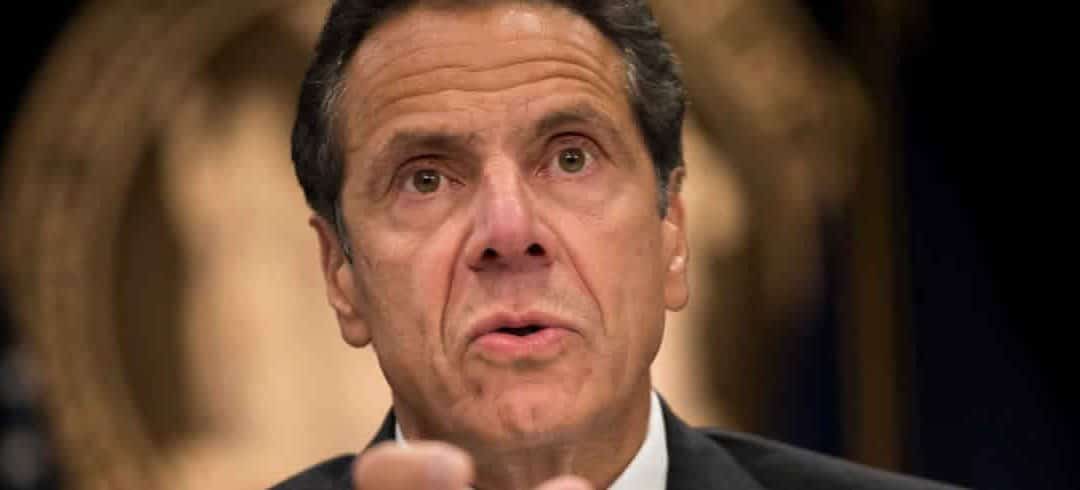- Mobile sports betting looks dead for the 2019 legislative session after revenues are excluded from the NY state budget.
- Gov. Andrew Cuomo indicates that online sports wagering would require a public referendum.
- New York sports betting will be limited to four commercial upstate casino venues.
ALBANY, N.Y. – If you needed more proof that mobile or Internet sports betting is not going to be legalized this year in New York, lawmakers have it. The state’s most recent budget—a $175 billion omnibus of social spending signed on Sunday by Governor Andrew Cuomo (D)—includes no provisions for either.
In most states, budgetary considerations are typically a strong indicator that a given law or proposal will either be passed or passed over for the foreseeable future.
Had New York lawmakers included mobile/Internet sports wagering in their latest budget, it would be reasonable to presume that the pastime would be on its way to a public unveiling in the near term. Of course, the opposite is also true, and that is precisely the case here.
Nevertheless, for anyone paying attention to the sports wagering legalization push in the Empire State, this should come as no surprise. Gov. Andrew Cuomo has repeatedly attacked the notion of mobile sports wagering on two fronts.
Sports Betting Isn’t The Pot Of Gold At The End Of The Rainbow
First, according to Cuomo, the financial impetus simply isn’t there. In a recent WAMC roundtable, Cuomo stated that New York sports betting is far from the budgetary cure-all it’s often characterized as.
“Sports betting, first of all, does not make you that much money. New Jersey has sports betting, it’s on TV all the time. … They raised something like $13 million dollars – $13 million dollars is a rounding error in our state. So I don’t even think the economic benefit is there.”
State Senator Joseph P. Addabbo, Jr., who is the main sponsor for both Senate bills seeking to implement expanded sports wagering in the state (SB 17 and SB 1490) disagrees. According to Addabbo, mobile sports betting operators would have to pay a $15 million one-time licensing fee which would generate an immediate $60 million for New York.
“That’s significant revenue. It’s money we don’t have and money we need. The budget starts with a $3 billion deficit and we don’t want to raise taxes.”
At market maturity, mobile and land-based sports wagering, analyst firm GMA predicts annual revenue of between $169.4 million and $564.8 million from sports wagering in New York. Roughly 80% of this would come from mobile betting platforms, provided those are legalized.
Online Sports Betting Requires A Public Referendum
Gov. Cuomo’s second (and more persuasive) reason for being lukewarm on mobile sports wagering in the near-term future is that such constitutes expanded gambling.
In New York, expanded gambling requires a public referendum. In other words, mobile sports wagering must be put to a public vote. Thus, mobile wagering could be a non-starter in New York for at least another year.
The earliest that a statewide vote could be held would be in November. Such a vote would then give way to congressional proposals that would at the very least take up the entire 2020 legislative session. In these terms, the earliest that New Yorkers can expect to see legalized sports wagering would be by Q4 2020.
Temporary Casino Exclusivity Could Be A Good Thing
That said, the state has a vested interest in promoting the so-far flagging market it created by the passage of 2013’s Upstate New York Gaming Economic Development Act. This legalized the construction of commercial casinos in four different upstate regions:
- del Lago Resort and Casino (Waterloo)
- Resorts World Catskills (Monticello)
- Rivers Casino & Resort (Schenectady)
- Tioga Downs & Casino (Nichols)
To date, none of the four venues has come close to meeting its economic projections. With legal sports betting limited to these locales, New York could legitimately turn around its latest gaming efforts, but only if sports wagering traffic is not cannibalized by more convenient online opportunities.
Without a few years of exclusivity to shore up the books at these books, mobile sports wagering would likely immediately preempt and permanently displace those necessary gains. Preventing this contingency seems to be the tack most seriously courted in Congress.
It’s a good bet that New York-based mobile sports wagering and Internet wagering are coming to the Empire State eventually. The only sure thing, however, seems to be that it won’t be in 2019.
Advertising Disclosure
In order to provide you with the best independent sports betting news and content LegalSportsBetting.com may receive a commission from partners when you make a purchase through a link on our site.
News tags: mobile sports betting | New York | New York sports betting | NY SB 17

Andy has been writing professionally for nearly two decades, with the last three years being dedicated to his primary passions: sports wagering news and gambling industry analyses. A walk-on punter, Andy has a particular interest in professional football, baseball, and horse racing betting. Come early May, you can always catch Andy – clad in all white, mint julep in hand – on Millionaires Row at Churchill Downs. In his dreams.


 Bitcoin Sports Betting Sites
Bitcoin Sports Betting Sites Best Online Sports Betting
Best Online Sports Betting Famous Sports Bettors
Famous Sports Bettors States With Legal Sports Betting
States With Legal Sports Betting Sports Betting Events
Sports Betting Events




